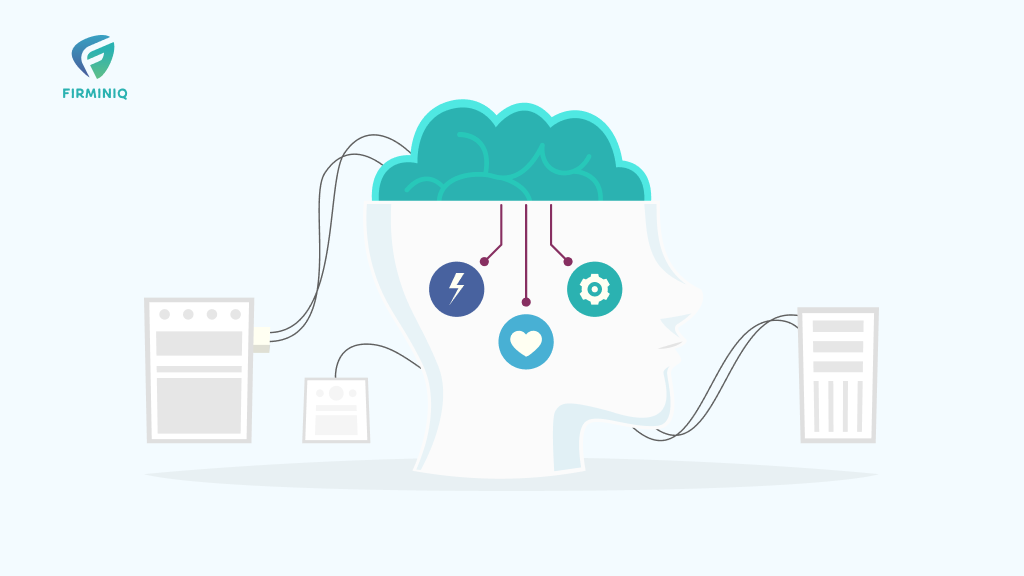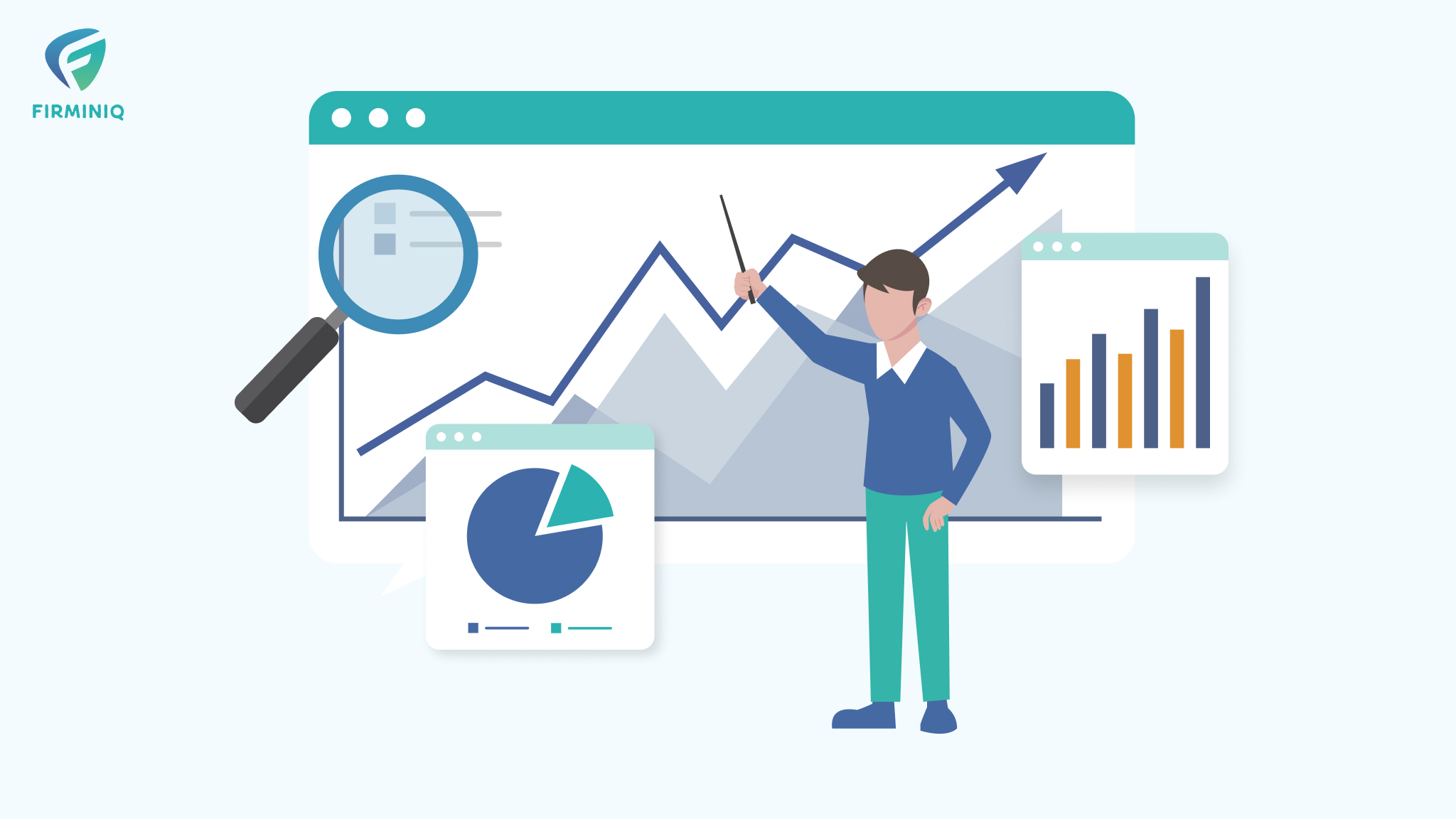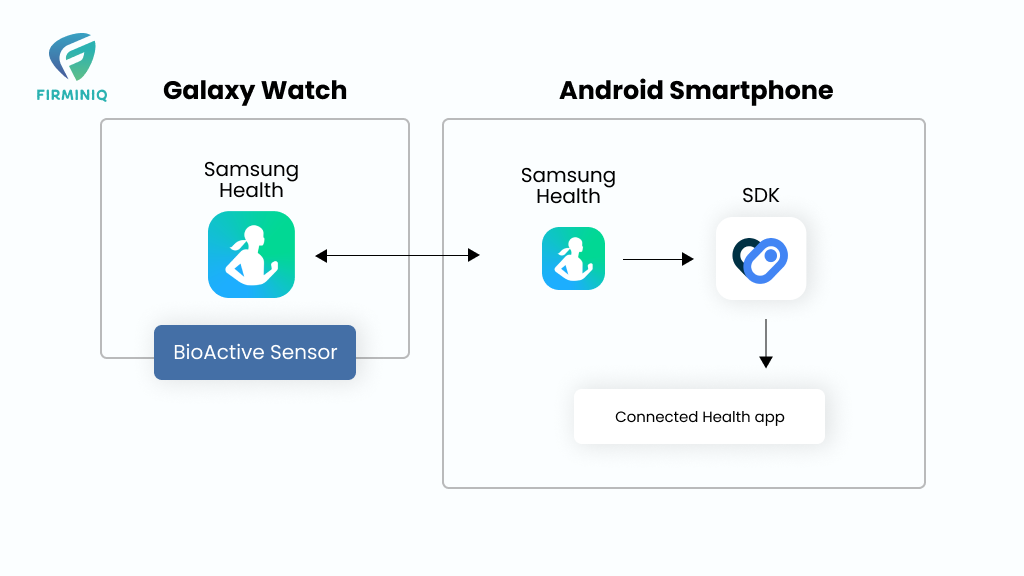Mental illness is a disease and like any other medical condition, individuals need support, intervention, and continued care to address their symptoms. 1 in 5 U.S. adults experiences mental illness each year as per National Alliance of Mental Illness. The attributes that raise mental illness like depression and anxiety are the demand of modern society and the pandemic that triggered the existing health issues.
The rise in digital care raised the use of technology and one of them is Artificial Intelligence. “The scope of AI in mental health is huge, with BCC Research estimating that the market will grow at a rate of 34.3% over the next five years, reaching $3.8 billion by 2027.”- BCC Research
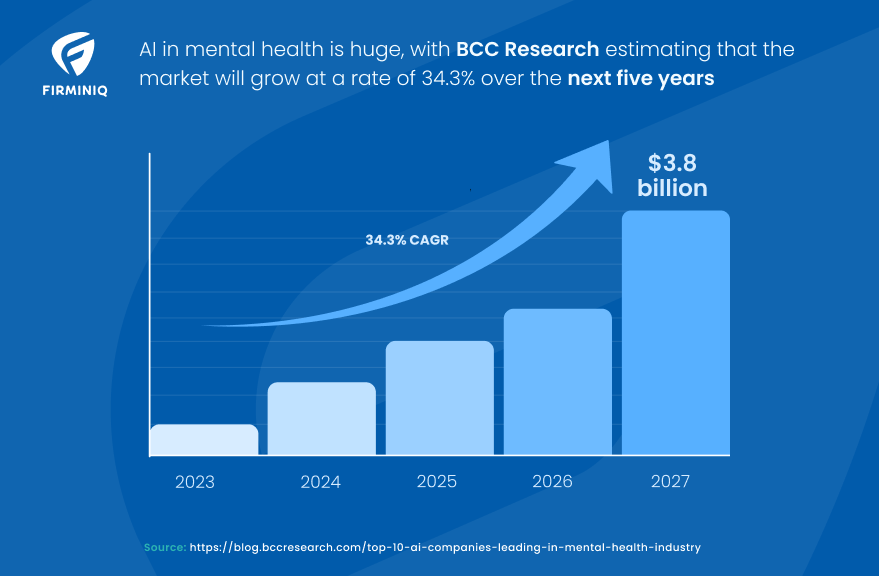
The healthcare professionals are using AI that enhances the diagnosis precision, offers more accessibility and personalization. The use of AI and machine learning collaboratively can revolutionize, be it mental healthcare or other. The technology allows the clinicians to make better therapeutic decisions, identify patterns and risk factors with readily available data.
Given the rising use of AI and ML in healthcare, let us assess the status of technology and know its trends, gaps and opportunities in mental healthcare management.
Ways that AI has Contributed Towards Improved Health Therapy
Using complex data, AI can seamlessly analyze the issues and is instrumental in improving the diagnosis by enhancing the accuracy of test results. Not only this, but there is also a lot more. Here are the specific ways AI impacts healthcare treatment.
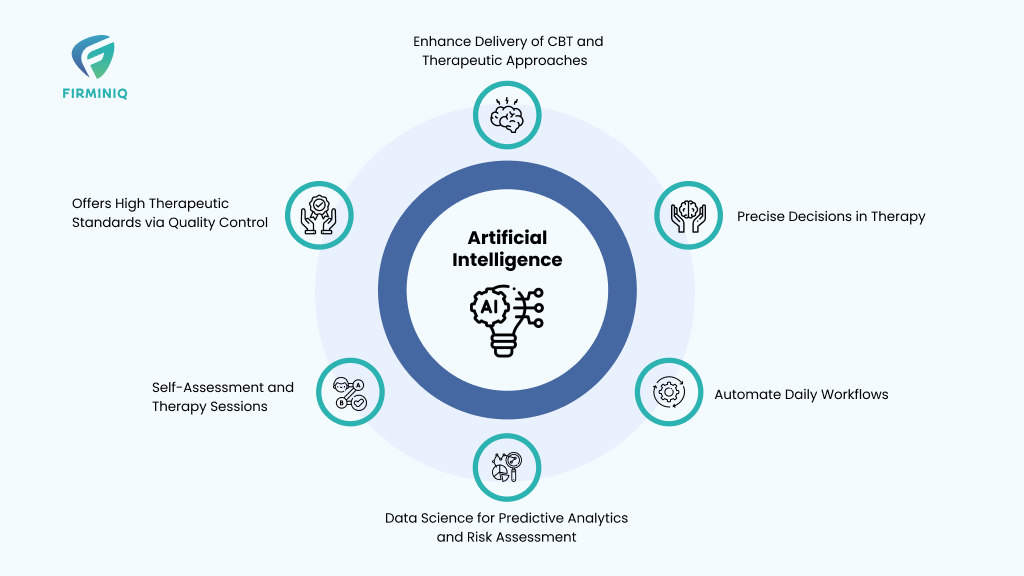
1. Offers High Therapeutic Standards via Quality Control
With the automated monitoring methods AI offers, it has the potential to contribute towards higher therapeutic standards and enhance quality control. The algorithm in AI offers standardized assessments by offering consistent and objective measurements. AI continuously learns from patient data, the outcome of treatment, and evolving clinical knowledge. Although AI can contribute to quality control in mental healthcare, human expertise and judgment remain essential.
One of the organizations named Mindstrong is a virtual mental health care platform that helps users overcome mental health challenges using AI-enabled data and technology for personalized care. With better insights into the user data, therapists aim to deliver higher standards of care.
Due to inexact language distress, there are few symptoms for a particular condition only, which makes it difficult for physicians to intervene and know what people are suffering from. So here AI plays a significant role. For example, Ieso uses AI to analyze the language used in its therapy sessions via Natural-language processing.
2. Self-Assessment and Therapy Sessions
AI-powered self-assessment tools are represented by Natural language-processing chatbots. From the right advice to seeking mental health support, and evaluating progression, they allow individuals to access their mental health. The tools use algorithms and offer individuals a structured framework for monitoring their mental health.
The interactive and guided support self-help allows users to intervene in cognitive-behavioral therapy exercises, stress management techniques, provide empathy, offer advice, or psychoeducation modules. Adapting these offers personalized responses to the users and are effective.
A study recently published in JMIR examined the utility of an AI-powered chatbot called Woebot, a mental health digital solution designed to treat substance use disorders. Woebot is a chatbot based on the cognitive-behavioral approach with evidence for the reduction of anxiety and depressive symptoms.
The AI chatbots are known for delivering highly personalized care based on CBT and other clinically proven methodologies.
3. Data Science for Predictive Analytics and Risk Assessment
AI algorithms have the capability to analyze data sources, such as electronic health records, wearable devices, and more to assess an individual’s risk of developing mental health disorders or detect any early signs. Whereas data science develops predictive models that estimate the individual response to the treatment based on characteristics, symptoms, behavior and other relevant factors. The analysis helps physicians to choose the most relevant approach for treatment that is likely to bring positive outcomes.
The algorithms can also analyze historical patient data and develop predictive models to evaluate the probability of relapse in individuals with mental health issues. As the risk factors are detected at the earliest stage, the provider can offer individuals personalized treatment plans, adjust their dosages accordingly and implement preventive measures to minimize the relapse risk.
4. Automate Daily Workflows
Artificial Intelligence in mental healthcare helps with the daily workflow, streamlines processes and improves efficiency. It reduces the administration burden as the AI driven tools can automatically extract the information and generate on-demand reports as per the need.
AI powered tools also help automate appointment reminders, sending personalized messages and notifications to the users while managing the calendar.
One of the examples of an AI platform that offers a broad selection for the mental health professionals is the MindfulAI platform. It offers a comprehensive set of features and capabilities that are designed to support and offer automation for mental health professionals while assisting them in their daily work.
5. Precise Decisions in Therapy
As AI helps physicians to detect the patient’s illness on a prior basis, they can make accurate choices and treatment plans. The insights the physician gathers from the data help them figure out what will work best for the patients. Identifying individuals with a higher risk allows physicians to implement the necessary preventive measures and make more accurate decisions regarding ongoing care and management.
6. Enhance Delivery of CBT and Therapeutic Approaches
CBT is an evidence-based widely used treatment approach in mental health care and AI is used to enhance the delivery of CBT. It aims to address the underlying thoughts, negative emotions, and behaviors that contribute to mental health challenges. With CBT individuals are equipped with practical skills and techniques that they can apply in their daily lives.
As per a research paper from Jama Psychiatry, deep learning model was used on a large-scale clinical data set of cognitive behavioral therapy (CBT) session transcripts to generate a quantifiable measure of treatment delivered. These findings support the principle that CBT change methods help produce improvements in patients’ presenting symptoms.
Epilogue
As the pandemic continued to intensify mental health issues including depression and anxiety, there was a continuous growth in the demand for technological and digital tools to enhance mental healthcare delivery and AI is one of them.
Also Read: Tech-Based Innovations to Seamlessly Tackle Your Mental Health: Comprehensive Guide
Combining Artificial Intelligence tools with mental healthcare expertise has an exciting future implication. AI algorithms can analyze vast amounts of medical data, including patient records, lab results, medical images, and scientific literature, to assist healthcare professionals in making accurate diagnoses and treatment decisions.
Integrating AI and other technological tools for building connected healthcare apps for mental care is quite a trend now and many organizations are investing in the same. If you wish to develop such connected healthcare applications that can help patients manage patients with mental health conditions, reach out to us!


